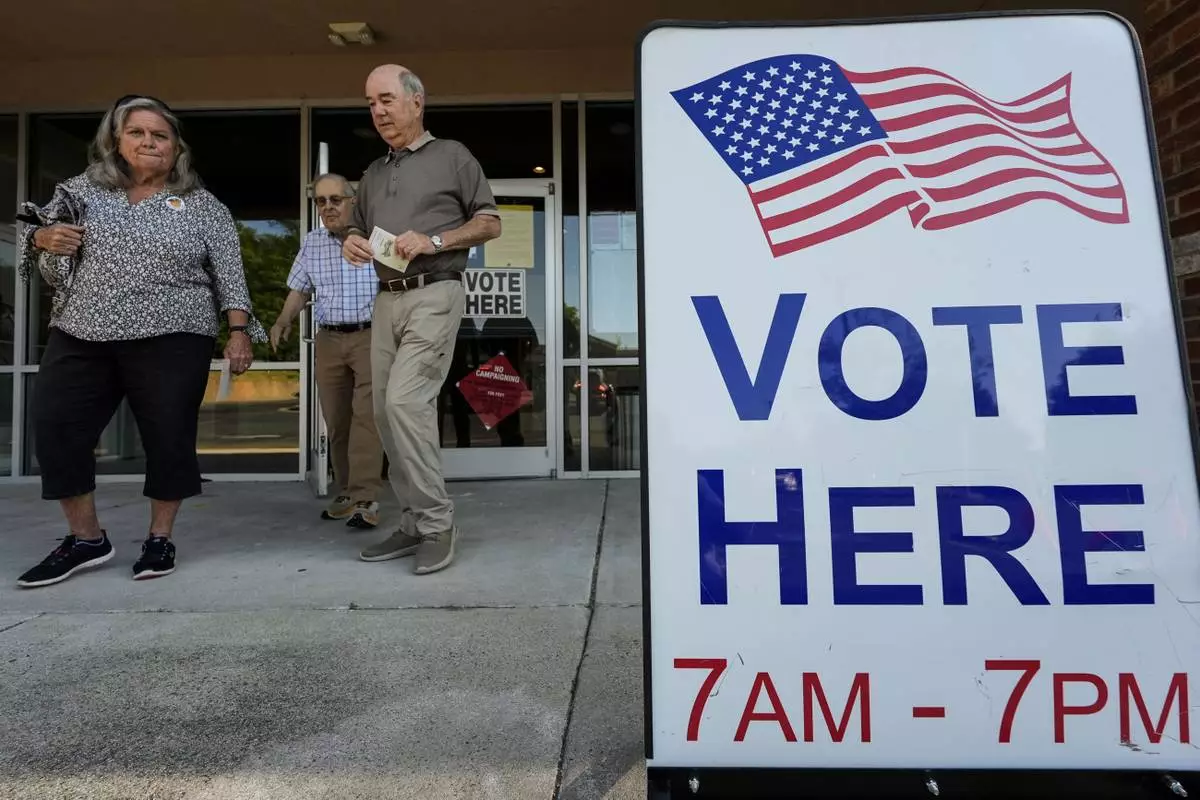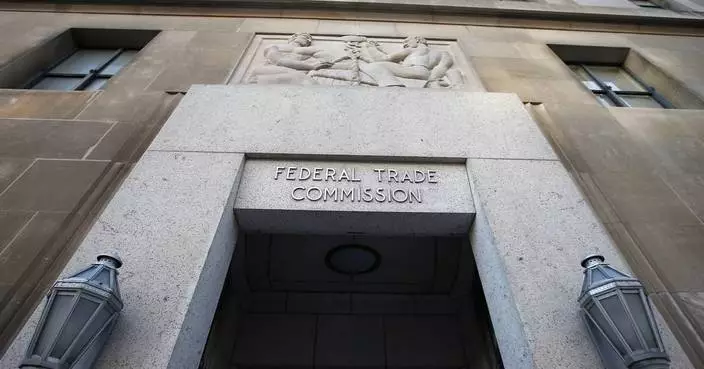COLUMBUS, Ohio (AP) — The leader of a nonprofit representing the Haitian community invoked a private-citizen right to file charges Tuesday against former President Donald Trump and his running mate, JD Vance, over the chaos and threats experienced by Springfield, Ohio, since Trump first spread false claims about legal immigrants there during a presidential debate.
The Haitian Bridge Alliance made the move after inaction by the local prosecutor, said their attorney, Subodh Chandra of the Cleveland-based Chandra Law Firm.
Charges brought by private citizens are rare, but not unheard of, in Ohio. Examples might be a grocery store charging a customer for a bounced check. State law requires a hearing to take place before the affidavit can move forward. As of Tuesday afternoon, none had been scheduled.
Trump and Vance, a U.S. senator from Ohio, are charged with disrupting public services, making false alarms, telecommunications harassment, aggravated menacing and complicity. The filing asks the Clark County Municipal Court to affirm that there is probable cause and issue arrest warrants against Trump and Vance.
“Their persistence and relentlessness, even in the face of the governor and the mayor saying this is false, that shows intent,” Chandra said. “It's knowing, willful flouting of criminal law.”
Steven Cheung, communications director for the Trump-Vance campaign, said, “President Trump is rightfully highlighting the failed immigration system that (Vice President) Kamala Harris has overseen, bringing thousands of illegal immigrants pouring into communities like Springfield and many others across the country.”
The 15,000 to 20,000 Haitian immigrants who have arrived in Springfield over the past several years, in many cases after being recruited to local jobs, have been granted Temporary Protected Status to be in the U.S. legally.
More than 30 bomb threats were directed at state and local government buildings and schools, prompting closures, the assignment of additional law enforcement protection and security cameras. Some of the city's Haitian residents have also said they feared for their safety as public vitriol grew, and Mayor Rob Rue has received death threats.
“If it were anyone else other than Trump and Vance who had done what they’ve done — wreak havoc on Springfield, resulting in bomb threats, evacuated and closed government buildings and schools, threats to the mayor and his family — they would have been arrested by now,” Chandra said. “They are not above the law.”
Chandra said the U.S. Supreme Court's July ruling granting ex-presidents broad immunity from criminal prosecution does not apply in this case because Trump is currently a private citizen and Vance did not amplify the rumors that members of Springfield's 15,000-member Haitian community were eating people's pets in his capacity as a senator.

FILE - Republican presidential nominee former President Donald Trump and Republican vice presidential nominee Sen. JD Vance, R-Ohio, attend the 9/11 Memorial ceremony on the 23rd anniversary of the Sept. 11, 2001 attacks, Wednesday, Sept. 11, 2024, in New York. (AP Photo/Yuki Iwamura, File)
ATLANTA (AP) — A new lawsuit seeks to overturn two provisions of a Georgia election law related to voter challenges.
The Georgia State Conference of the NAACP and the Georgia Coalition for the People's Agenda filed suit on Tuesday in federal court in Atlanta, arguing that a law passed earlier this year by lawmakers unfairly discriminates against homeless people and voters registered at nonresidential addresses.
A spokesperson for Georgia Attorney General Chris Carr, who would defend the suit, did not immediately respond to a request for comment Tuesday.
Part of Senate Bill 189, which took effect July 1, lets people file legal challenges to the eligibility of voters registered at nonresidential addresses. County election boards decide whether to reject the challenge or uphold it. Supporters of the law argue many people are incorrectly registered at business addresses or even in empty lots instead of where they live. That means someone may be voting in the wrong precinct and the wrong local government and state legislative elections.
Some voter challengers, for example, argue that no college student should be able to register to vote at their college dormitory because they don’t intend to live there indefinitely, even though voting officials disagree and allowing students to register at college has long been the practice.
Those opposing the law argue that college dormitories, senior and nursing facilities and homeless shelters may be zoned as nonresidential, saying there's no basis in state or federal law for challenging a voter solely because they provided a nonresidential address.
“Residing at a premises deemed to ‘residential’ in character is not required by the Georgia Constitution or any other Georgia law respecting voter eligibility in the state of Georgia,” the lawsuit states.
The plaintiffs also seek to overturn a separate section of the new law that takes effect Jan. 1 that governs where homeless people register. That section mandates that homeless people use their county's election office to receive election-related mail. That could, in some cases, mean long journeys for people to retrieve mail including absentee ballots and challenges to their eligibility. The lawsuit says the law is unfair because all other Georgia voters can receive mail at their address of choice, even if it's not where they reside.
The suit warns that it's unclear whether counties will hold mail for homeless people, that there isn't a special homeless category on voter registration forms, and that counties may unilaterally change mailing addresses for existing voters or reject new applications from homeless people who don't list the county office.
“Eligible voters who are unhoused, housing-insecure or otherwise living at a location with a nonstandard address — or no address at all — retain their right to vote regardless of the nature or status of their residence,” the suit states.
An Associated Press survey of Georgia’s 40 largest counties found more than 18,000 voters were challenged in 2023 and early 2024, although counties rejected most challenges. Hundreds of thousands more were challenged in 2020, 2021 and 2022.
Republican activists are challenging tens of thousands of Georgia voters as part of a wide-ranging national effort coordinated by Donald Trump’s allies to take names off voting rolls. Most of the people they are targeting have moved away from their old addresses, and the activists argue that letting those names stay on the rolls invites fraud. But Democrats and liberal voting rights activists argue Republicans are challenging voters either to remove Democrats or to sow doubt about the accuracy of elections in advance of 2024 presidential voting.

FILE - Voters depart an election center during primary voting, Tuesday, May 21, 2024, in Kennesaw, Ga. (AP Photo/Mike Stewart, File)











